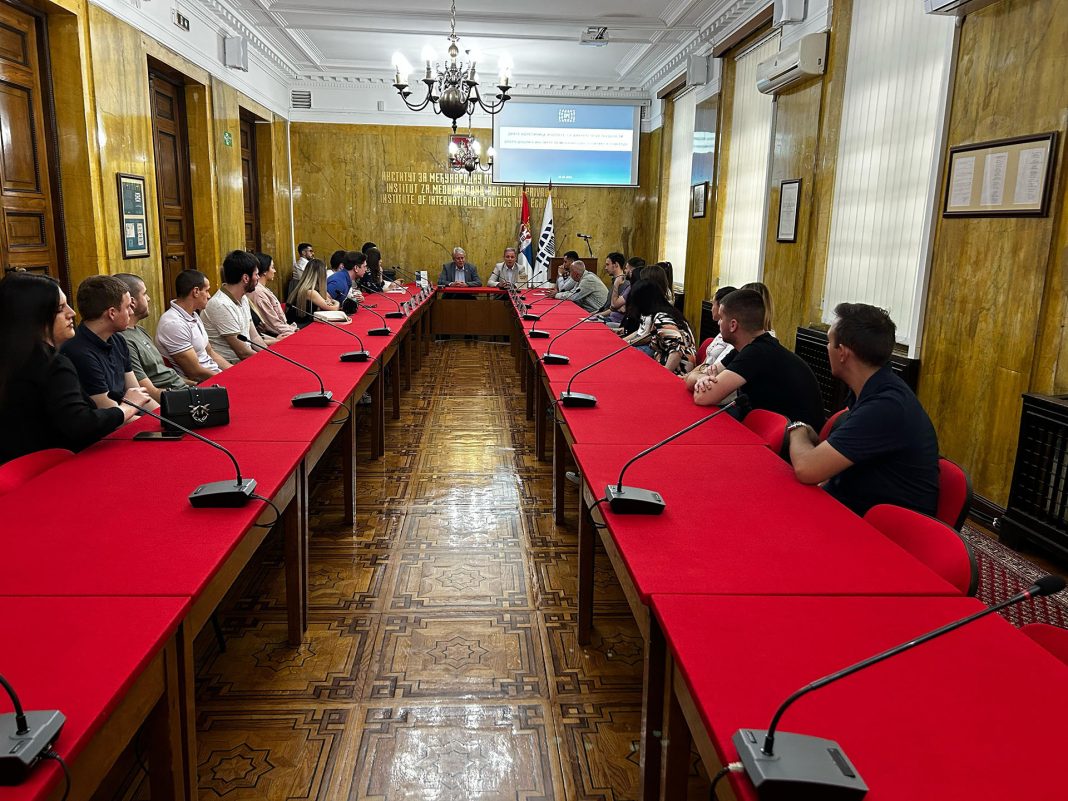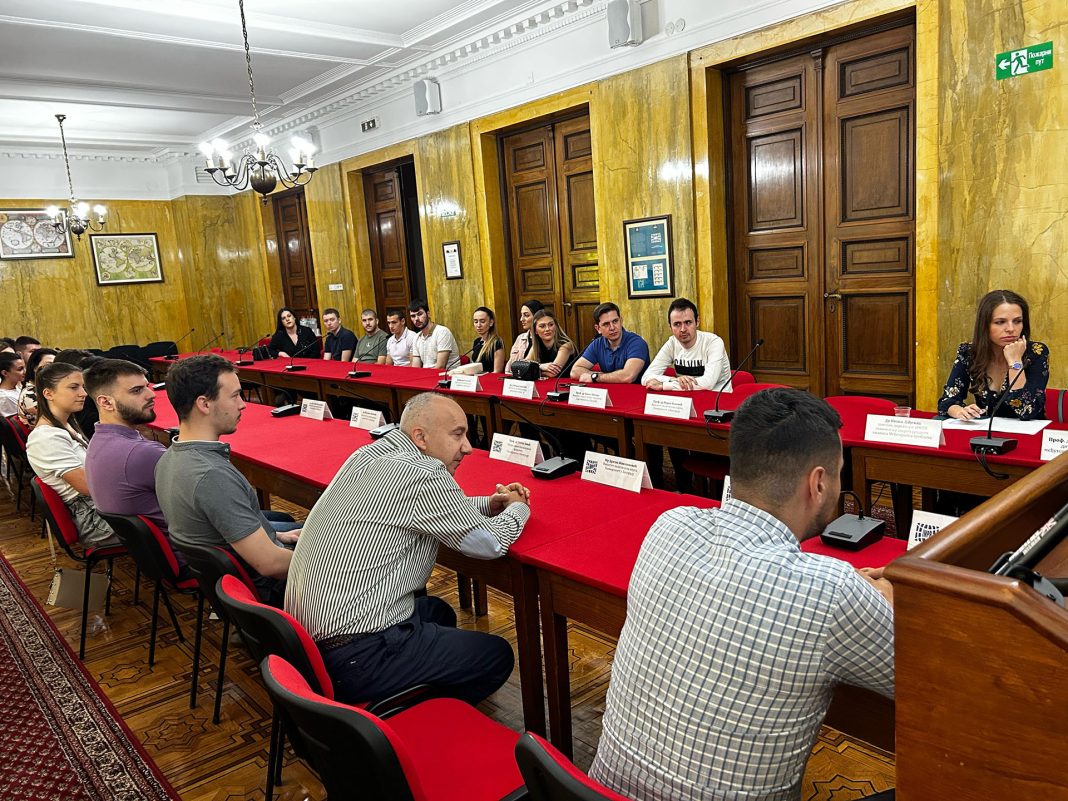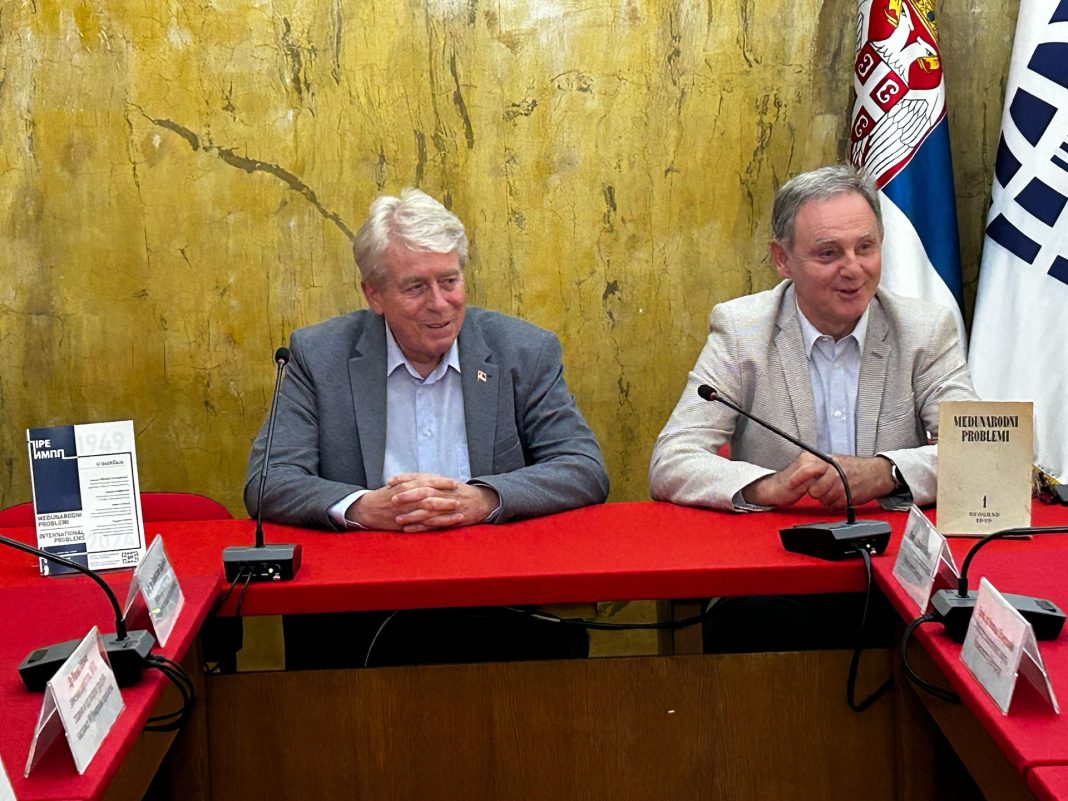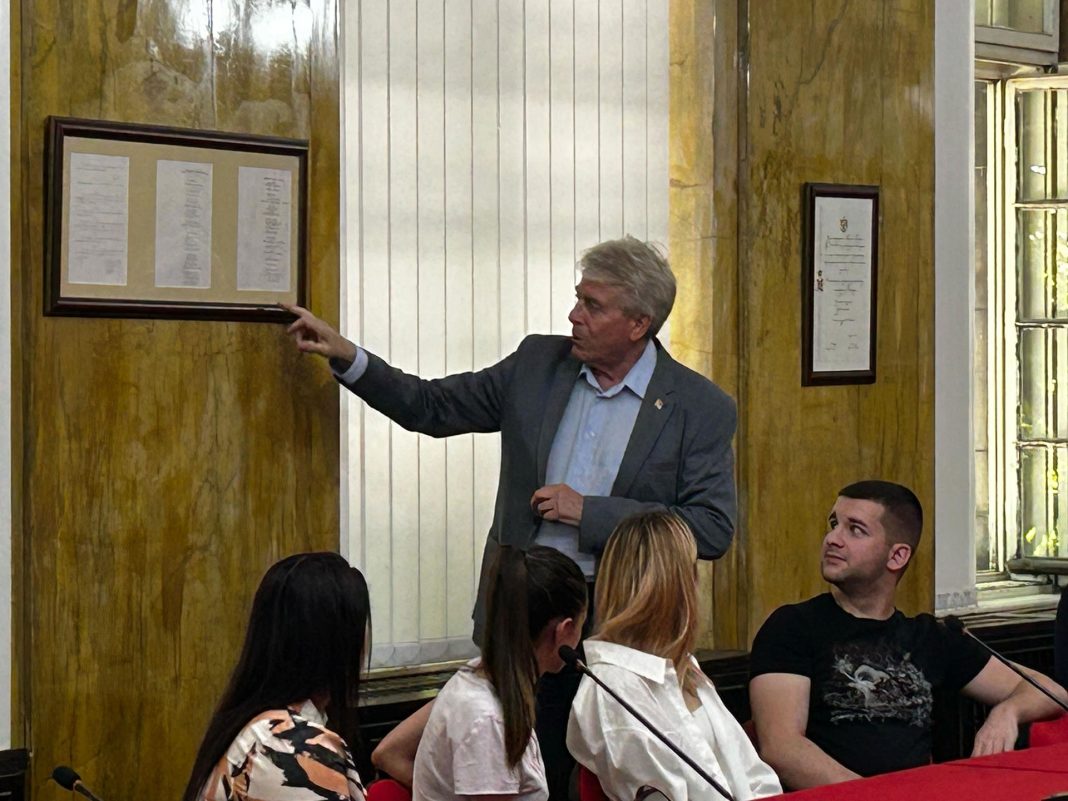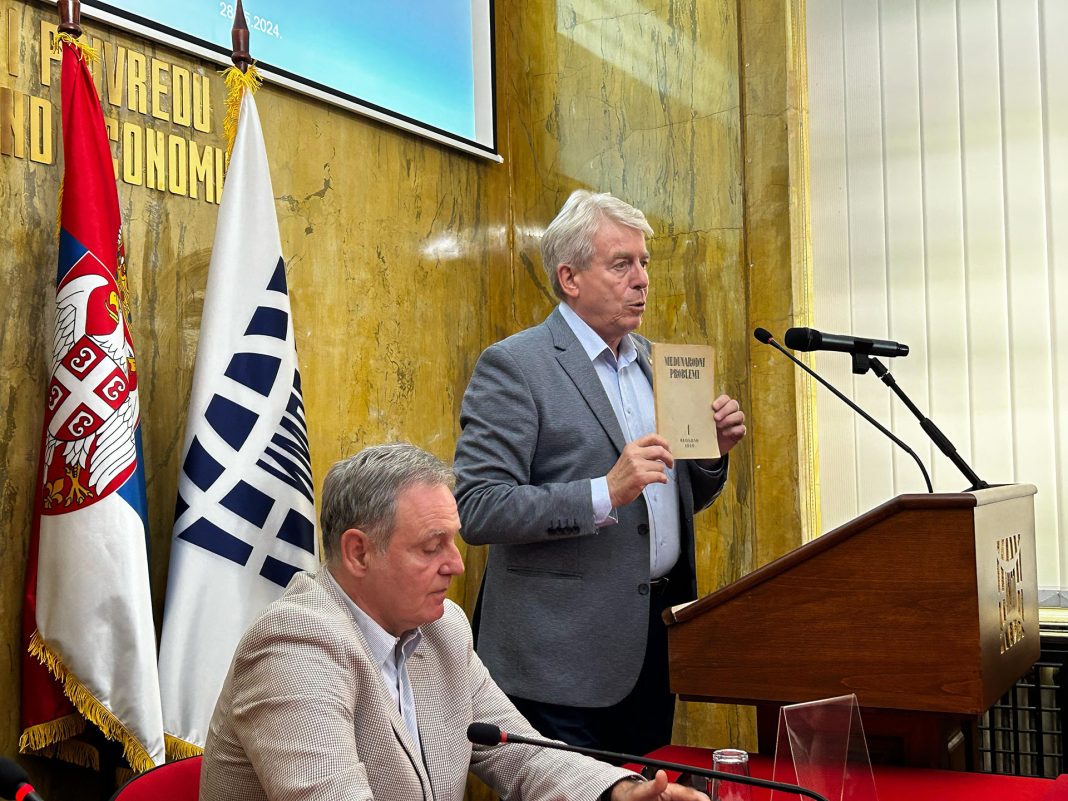Students of the Faculty of Security Studies, led by Professor Dr Zoran Jeftić, visited the Institute of International Politics and Economics. The visit provided a valuable opportunity for students to gain insights into the latest developments in international relations and explore potential career paths within the IIPE.
Professor Dr Branislav Đorđević, Director of the Institute, acquainted the students with the Institute’s history, research areas, and scientific and publishing activities. He particularly highlighted the Institute’s diverse activities, such as the Winter School of International Relations and the Short-Term Volunteering Program, emphasizing their significance as the first steps for students interested in pursuing career in scientific research. Director Đorđević specifically pointed to the research associates and research assistants at the Institute who graduated from the Faculty of Security, highlighting them as successful examples.
Following the introductory remarks by Professor Jeftić and Director Đorđević, Dr Veljko Blagojević, IIPE’s Senior Research Fellow, delivered a short lecture titled “Quo Vadimus? Global Challenges in International Relations”, in which he provided an overview of the current state of international relations and pointed out the most significant trends. Dr Blagojević particularly emphasized the return of realpolitik to international relations, the intensification of geopolitical rivalries, and the influence of multinational corporations on changes in contemporary international relations. Additionally, Dr Blagojević offered a brief analysis of the current conflicts in Ukraine and the Middle East, highlighting the possible outcomes and consequences on a global level. Dr Blagojević concluded his presentation by examining the future of power.
In addition to the lecture, the students of the Faculty of Security Studies had the opportunity to attend an event organized by the Institute to celebrate the 75th anniversary of the founding of the journal “International Problems/Međunarodni problemi”.


